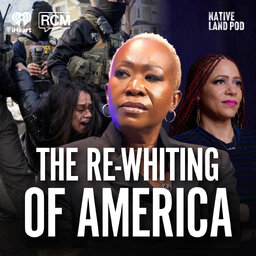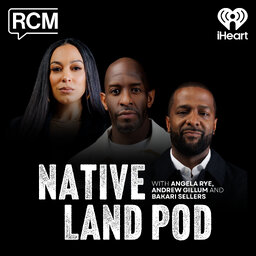CBC Shorts: Author Ibram X. Kendi
Dr. Ibram X. Kendi, New York Times best-selling author, historian, and thought leader sits down with hosts Angela Rye, Tiffany Cross and Andrew Gillum during a special live broadcast of Native Land Pod from the Congressional Black Caucus Annual Legislative Conference. Dr. Kendi unpacks Trump’s persistent racism (and in particular his targeting of Haitian immigrants), placing it into a larger project of Trump’s — to criminalize Black people. “When you demean one Black group you demean every Black group,” he says.
Listen to the full broadcasts from the Congressional Black Caucus Foundations 53rd Annual Legislative Conference and all of the Native Land Pod episodes on the podcast feed (wherever you get your podcasts) or watch on the Native Land Pod YouTube page.
As always, we want to hear from you. Send us a video @nativelandpod and we may feature you on the podcast.
If you’d like to submit a question, check out our tutorial video: www.instagram.com/reel/C5j_oBXLIg0/
—---------
Thank you to the Native Land Pod team, Reasoned Choice Media and iHeart. Theme music created by Daniel Laurent.
In 1 playlist(s)
Native Land Pod
In the spirit of the last stanza of the Black National Anthem, we rise from the past, rooted deeply …Social links
Follow podcast
Recent clips

ICE Detains Americans and Targets the Press | Angela Rye SoloPod
29:10

Why the Federal Reserve Investigation Should Concern You | MiniPod
24:07

The Re-Whiting of America
1:43:32
 Native Land Pod
Native Land Pod